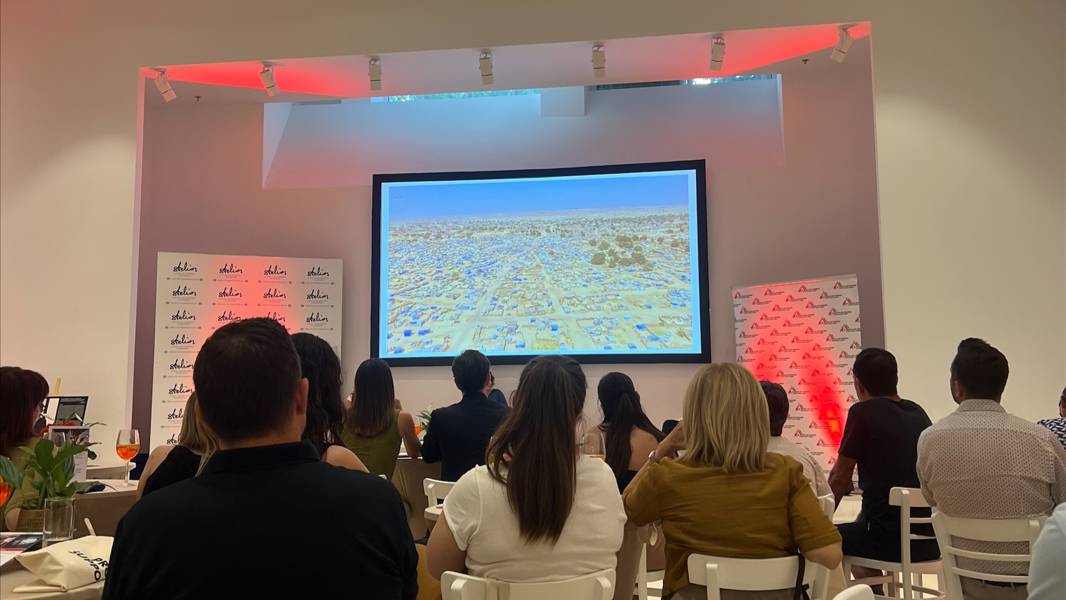
SNF interns hear “voices from the field” working in South Sudan
By listening first-hand to the experiences of those providing humanitarian aid in crisis zones, we were inspired and recognized anew the transformative work that Médecins Sans Frontières Greece is doing around the globe.
In war zones around the world, the work of MSF Greece is being felt. We had the opportunity to hear about their experiences directly from the MSF Greece staff working on the front lines: their day-to-day life, the events that affected them but also why they chose to work in humanitarian aid.
The panelists, MSF Greece doctors returning from emergency missions around the world, articulated the impact MSF has made, the conditions they faced working with limited resources, and the dire need for support to continue the lifesaving work they do.
On the tables from which we watched the panel were HIV and Hepatitis tests used in the field, as well as a simple tool for detecting severe malnutrition, the Mid-Upper Arm Circumference Tape, providing a view of everyday life in the world of a professional in the field.
MSF Greece, a Stavros Niarchos Foundation (SNF) grantee-partner, is one of the few international organizations on the ground working in certain areas that are more heavily impacted by violence, notably in South Sudan.
The crisis in Sudan is one of the largest humanitarian crises in recent years. Since the conflict began, nearly 13 million people have been displaced. The situation is particularly critical for women and children, who make up the majority of those living in refugee camps under difficult conditions. The work carried out by MSF on the ground is essential, as they are working to fill significant gaps in humanitarian aid and providing life-saving support.
Many of the health centers in the region are either no longer functioning, or it is too dangerous and poses too much risk for patients to reach them. In Sudan, there has been large-scale outbreaks of vaccine-preventable diseases like measles and cholera, as well as a critical area of concern is for maternal and child healthcare.
The SNF has supported MSF Greece since 1999, most recently for their efforts to help provide emergency treatment, surgery, and trauma care for Sundanese refugees. For many of the people we heard from, it was difficult to come to terms with the brutality of the war there. But working in the refugee hospital, built from scratch under difficult conditions, reminded them of the impactful work MSF Greece does. The panelists agreed that MSF’s absence from the region would mean limited to no access to health services, ranging from routine treatment to emergency surgeries, births, and trauma care treatment.
Organizations like MSF Greece fill a critical gap in lifesaving humanitarian aid. They recounted the hard work but also the rewarding nature of humanitarian aid on both a personal and global level. The testimonies referred extensively to the relentless reality of life in war zones and the sheer number of people in terms of care, accompanied by photographs of the hospitals and camps. SNF is a proud supporter of the mission of Médecins Sans Frontières Greece, which we had the opportunity to hear about firsthand through the event.